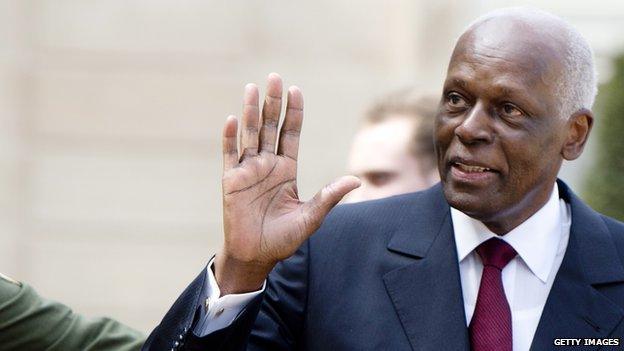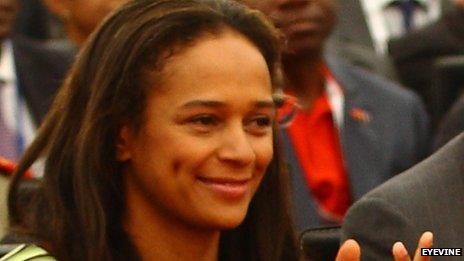Angola profile - Leaders
- Published
President: Jose Eduardo dos Santos

Jose Eduardo dos Santos, of the ruling MPLA, has been in power since 1979, and is Africa's second-longest serving head of state after Equatorial Guinea's Teodoro Obiang. He keeps tight control over all aspects of Angola's political life.
Many Angolans credit the president for leading the country to recovery after the end of its 27-year civil war in 2002, and for turning the country's formerly socialist economy into one of the world's fastest-growing - mainly on the back of Angola's prodigious oil wealth.
Some, however, accuse him of authoritarianism, staying in office for too long and failing to distribute the proceeds from the oil boom more widely.
In 2008, his party won the country's first parliamentary elections for 16 years in 2008. A new constitution approved in 2010 substituted direct election of the president with a system under which the top candidate of the largest party in parliament becomes president.
It also strengthened the presidency's powers, prompting the Unita opposition to accuse the government of "destroying democracy".
Political ferment
In early 2011 a social media campaign calling for protests to end Mr Dos Santos' rule gathered momentum, but petered out amid what the New York-based campaign group Human Rights Watch called a "campaign of intimidation" against demonstrations.
The MPLA won the 2012 parliamentary election comfortably, guaranteeing My Dos Santos another five-year term in office.

Isabel dos Santos, the president's daughter and reportedly Africa's wealthiest woman
Born in 1942, Mr Dos Santos joined the MPLA's guerrilla army at the age of 19. In the former Soviet Union he trained in oil engineering and radar technology. He held ministerial posts before becoming president.
He came to office when the country's first post-independence president, Agostinho Neto, died, inheriting the civil war with the Unita party.
After a peace deal signed in 1991, Mr Dos Santos beat Unita leader Jonas Savimbi in the first round of Angola's first contested presidential election in 1992, but Savimbi rejected the result and resumed guerrilla war. No second round was held, but Mr Dos Santos was recognised internationally as president.
The president's daughter Isabel was named Africa's first billionaire by Forbes, the financial magazine.
''Though her representatives deny that her holdings have any connection with her father, Forbes research shows that the president has transferred stakes in several companies to his daughter," the magazine said, describing her as Africa's richest woman.
The anti-corruption organisation Transparency International ranks Angola near the bottom of its corruption perception index.